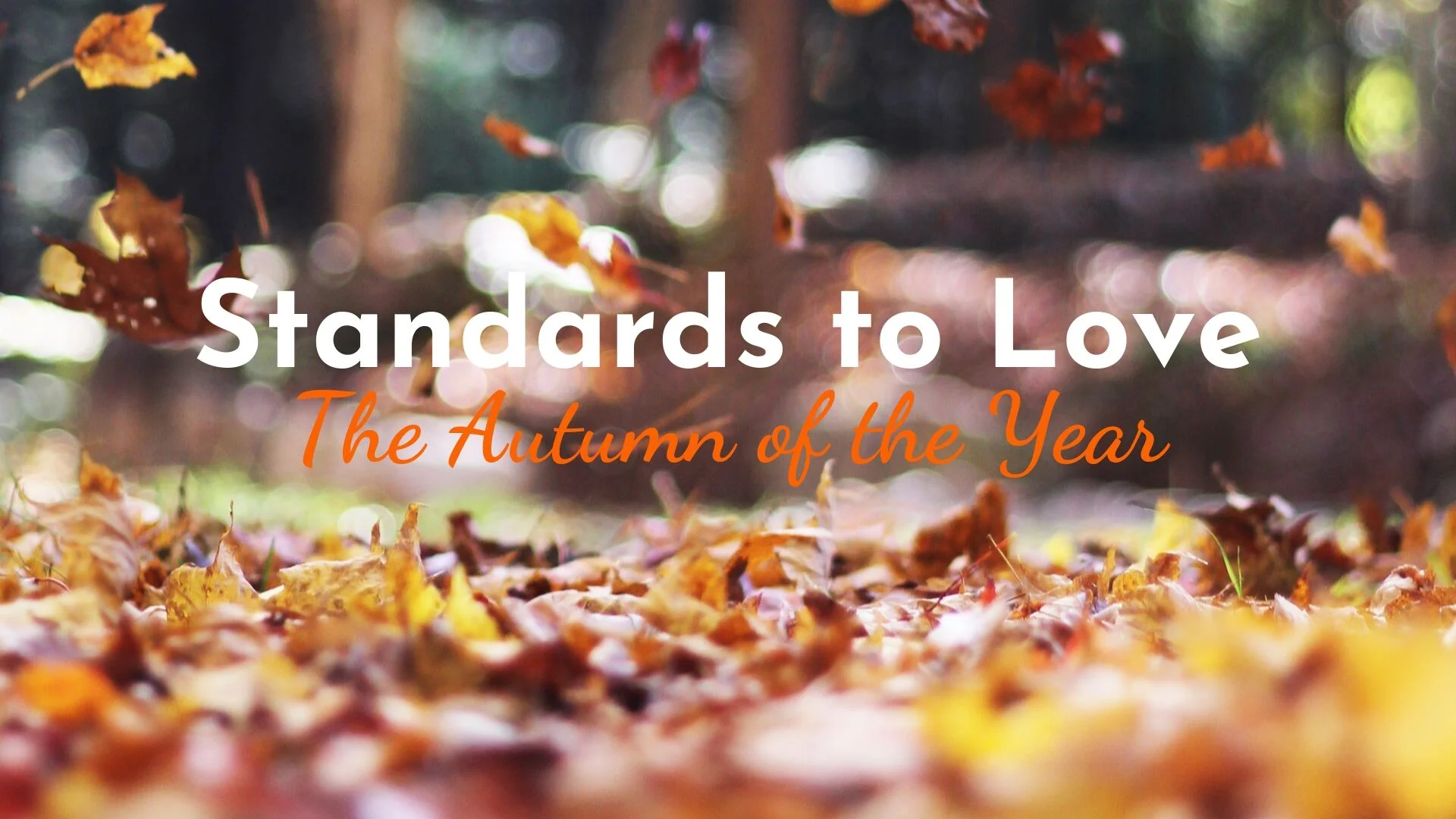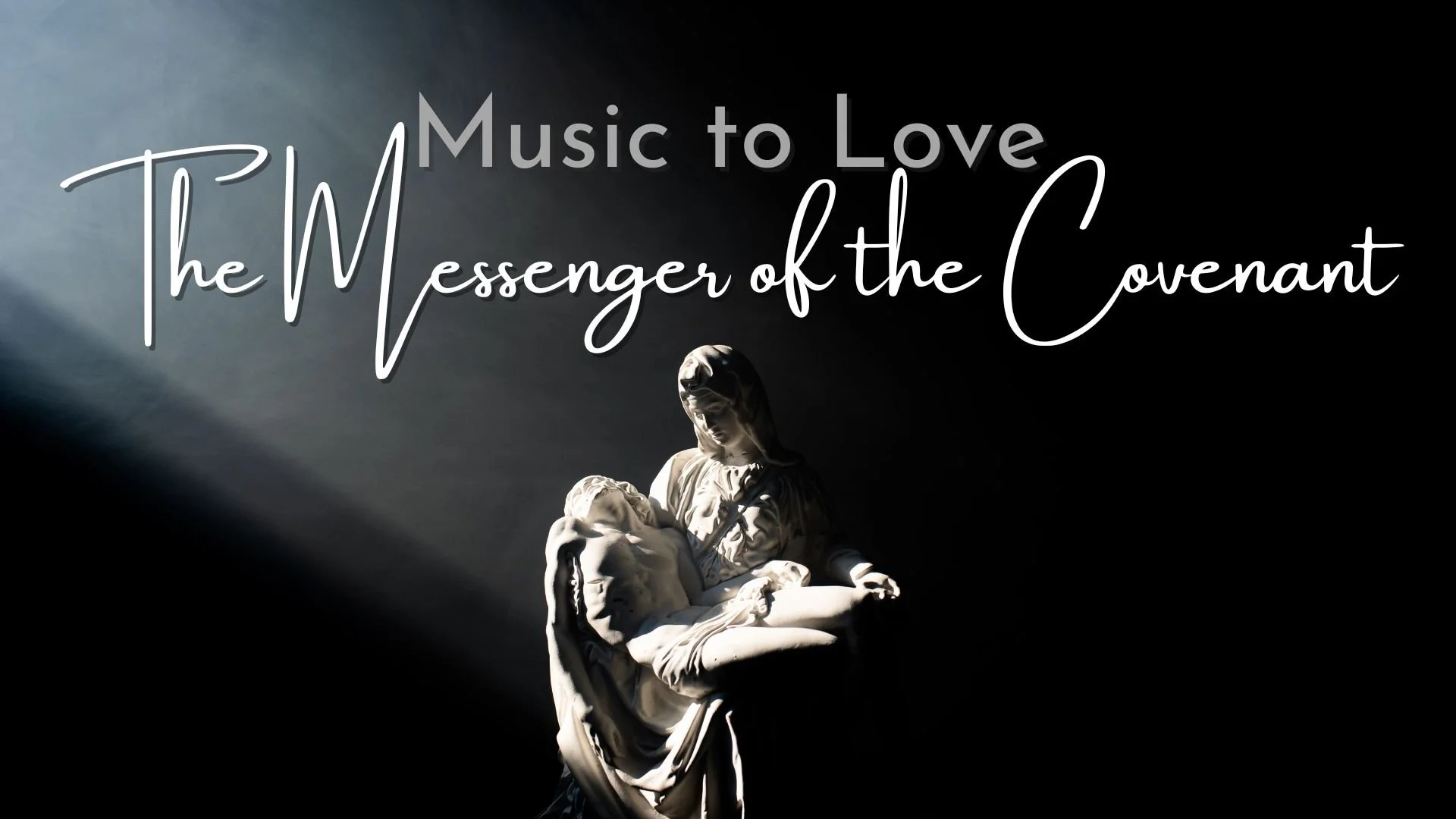Standards to Love: Baby, It's Cold Outside
With Halloween behind us, retailers seem to have skipped the month of Novemeber altogether. Recently, I was in a store and was saddened when I realized that all the music playing were Christmas songs. I’m firmly entrenched in the camp that says, we focus on Christmas after Thanksgiving. However, I do like to have music playing that does capture the shift in the weather and the winding up to the Yuletide season. Just not Christmas songs particularly. Before Thanksgiving, that is.
Thankfully (chalk this up to one of the things I’m thankful for in the daily Glad Game I’ve been playing), the Great American Songbook has a few really great hits that usher in the chilliness of autumn and the impending winter. Here in Tennessee as I write this, it’s a balmy 27ºF outside. Winter weather has rushed in rather swiftly and suddenly. So, if you’re stuck in arctic temperatures like me, or you just want to feel a little coziness in the waning light of evening, check out these songs.
Remarkably, this song has been rather controversial as of late. Thankfully, we’re stepping out of the anachronistic analysis of this song and viewing it through the words actually written and the time in which they were written to find out that it’s really just a delightful little romp of a love song. It’s supposed to be fun and flirty. That’s one of the reasons that I like it so much.
Baby, It’s Cold Outside was written by Frank Loesser to perform with his wife at a party they hosted in their apartment in New York at the Navarro Hotel. Apparently, the performance was an instant success. From 1944 to 1948, the couple was requested to perform it at countless parties to great applause. However, in 1948, Loesser sold the song to MGM to use in the film Neptune’s Daughter. While his wife was not happy about the sale, considering this little gem to be hers and her husband’s, it was a wise career move for Loesser as the song won an Academy Award.
Baby, It’s Cold Outside is a conversational duet between a host and a guest. The host is commonly referred to as The Wolf and is traditionally sung by a man; the guest as The Mouse is traditionally sung by a woman. Both parties wish for their delightful evening to continue, but the Mouse is feeling the impetus to leave because she doesn’t want to cause a scandal. The Wolf, however, protests that it’s simply too cold outside for her to leave. It’s a fun little romp and is intended to leave the listener smiling broadly by the end. While the roles seemed to be assigned, it is important to note that when the song debuted in Neptune’s Daughter, it was first sung between Ricardo Montalban and Esther Williams singing the Wolf and Mouse respectively, later in the same film, a comedic twist was applied and Red Skelton and Betty Garrett switched the traditional roles. I prefer it the way Skelton and Garrett did it. That’s why I’m including my favorite version of this song in which Nancy Lamott sings the Wolf and Michael Feinstein sings the Mouse from Lamott’s album, Just In Time for Christmas.
What’s your favorite version?
This songs tip-toes a little into the Christmas theme simply because it does mention December. However, it’s not truly a Christmas song. It’s more about the weather and it’s glacial frigidness. As today is such a day and it happens to fall in early November, I’m including this one because, apparently, cold weather knows no such monthly bounds.
I’ve Got My Love To Keep Me Warm chronicles how horrifically cold the weather is with blasts of arctic wind. From the lyrical descriptions, I always envision icicles everywhere, salted sidewalks with slush in the gutters, and plumes of vaporish breathe in the air. However, while the weather is indeed frightful, our merry singer doesn’t seem to care. Why? Because he’s got his love to keep him warm.
Irving Berlin wrote this piece in 1937 and it’s positively swinging. It was introduced in the film On the Avenue and sung by Dick Powell and Alice Faye (who has a magnificent voice and is so often overlooked). However, since it’s release, it has been a massive success, recorded by myriad artists ranging from Billie Holiday to Ella Fitzgerald and Louis Armstrong to Dean Martin. The arrangements have varied over the years, but it’s always maintained a swinging vibe that makes you want to shoe shuffle as you listen to it. My all time favorite recording is by Frank Sinatra.
Now, this song has nothing whatsoever to do with the weather. However, because it deals with a person’s coldness, I’ve decided to include it here today. Also, I happen to appreciate how Cold, Cold Heart, a clear cut country music song from the 1950s, could find it’s way into the Great American Songbook.
There’s a trifle bit of controversy surrounding who wrote Cold, Cold Heart. Since Hank Williams is the notable first recording of this song, the writing of it has been attributed to him. In fact, many people will argue that Williams did write it. However, Kentucky historian W. Lynn Nickell and music journalist Chet Flippo have gone to great lengths to give credit where it is due. They have written and sourced extensively the story how a young Kentuckian name Paul Gilley wrote the lyrics to Cold, Cold Heart before selling the song and the rights to Hank Williams. However, the composer of this song is still greatly credited to Hank Williams.
Controversy aside, Cold, Cold Heart was a huge success from Hank Williams on the Country Music charts in 1950 and continued to climb in its notoriety in the subsequent years. But here’s where it gets interesting. A young Italian singing waiter in New York City heard the song and put his own spin on it, collaborating with Percy Faith for the arrangement. It was a jazzy, peppy, decidedly NOT country music take on the song. The song was released in July of 1951 and was on Billboard charts for 27 weeks, peaking at #1. When Hank Williams heard the song, he called up this young Columbia artist and joked, “Why did you ruin my song?” This of course was not true as Williams truly loved this version and was known to play it on jukeboxes whenever he could.
Now, dear readers, do you know who that young Italian singing waiter from New York City was? None other than Tony Bennett. Bennett’s version of the song was instrumental in catapulting Williams to further fame outside of his traditional country music circles. It was also a prime example of the merging of two different music styles. In fact, when Bennett came to Nashville to perform at the Grand Ole Opry, he brought his music charts for the arrangement with him, but because the instrumentation of the musicians at the Opry was so different, they told him that they wouldn’t use the charts, but rather, follow his lead. What resulted, apparently, was another musical merging that lives on in legend.
Today I’m including a Tony Bennett version, although it’s not his 1951 Columbia one. Rather, it was recorded on his Viva Duets album in 2012. Viva Duets is another example of music melding that is superb. Bennett collaborated with artists from all over South America to record a Great American Songbook album that incorporates English, Portuguese, and Spanish languages and influences. For Cold, Cold Heart, Bennett sings with Buenos Aires artist Vicentico. It appears that Mr. Bennett is not done surprising us with how adaptable the American Popular Standard really is. I wonder what Hank would think of this version?
Now, this one definitely mentions Christmas. It also comes from one of the greatest Christmas movies ever made. However, as we did actually get a smattering of snow here in Middle Tennessee, I find I’m in the mood for a little more snow, snow, snow…
I’m talking about the song Snow from the film White Christmas which is song by Bing Crosby, Rosemary Clooney, Vera-Ellen, and Danny Kaye. It’s not a long song, but it’s a fun one, written by Irving Berlin (as were all the other songs in the movie). It’s a celebration of snow, an eager, almost childlike anticipation of the impending arrival of all that crystalline splendor. That’s really all that can be said about it. But it’s a great song to sing along to.
Those are my cold weather American Popular Standard picks. Are there any songs that make you think of cold weather? Or, perhaps, you’re familiar with another version of one of the songs that I’ve written about today. What version would be your favorite? Please share it.








































